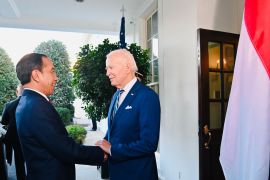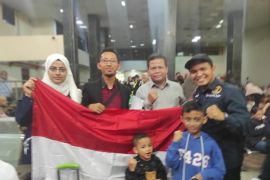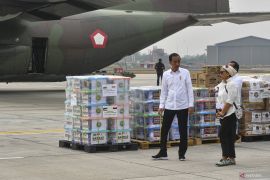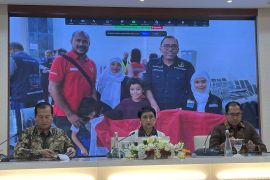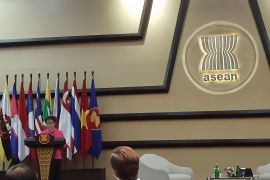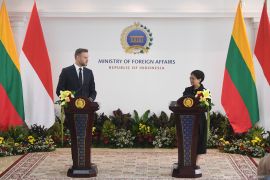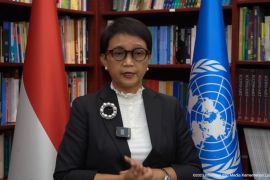Minister Marsudi met and held a dialog with Indonesian migrant workers at the Kulim Berhad palm oil plantation in Johor Bahru on Thursday, the official website of the Ministry of Foreign Affairs revealed here on Friday.
Minister Marsudi also urged the management of the enterprise that employs Indonesian migrant workers to adopt a cashless payment system to disburse the salaries of workers in a bid to provide facilities and security to the employees.
Earlier, on Wednesday, Marsudi had held a discussion with Indonesian migrant workers and the management of the KLK Plantation in Ladang Pelam, Kedah, Malaysia.
During a meeting with Penangs Head of State Haji Abdul Rahman in Penang, Minister Marsudi called for enhancing the protection of Indonesian citizens in the neighboring country.
Rahman welcomed Marsudi in Puri Seri Mutiara and expressed his gratitude for the contribution of Indonesian migrant workers in the development of Malaysia, particularly Penang State.
Spokesperson of the Foreign Affairs Ministry Arrmanatha Nasir, during a press briefing in Jakarta on Wednesday, stated that the main objective of the ministers visit was to boost the protection of Indonesian citizens in Malaysia, particularly in Penang and Johor Bahru.
The minister was scheduled to meet the leaders of the two states as well as visit several centers of migrant workers in the two regions.
The minister will launch several innovations to be applied in the Consulate General (KJRI) in Penang and Johor Bahru to improve services, such as a tracking system for passport applications and a cashless service system for consular services for the protection of Indonesians.
Around 1.4 million registered Indonesians live in Malaysia.
In Penang, there are around 80 thousand Indonesians of which most are employed in palm oil plantations or in the manufacturing industry, Nasir revealed.
Meanwhile, around 347 thousand Indonesians live in Johor Bahru.
What makes Johor Bahru unique is that the Indonesian governments representative there facilitates around seven thousand Indonesians to return home every year, Nasir stated.
"We can see that in Malaysia, there are several Indonesians facing legal problems. On an average, the two KJRIs provide assistance to those facing problems with employment," he noted.
Moreover, the KJRIs offer assistance to Indonesian citizens facing legal problems in connection with drug abuse, murder, and other crimes, including those involved in human trafficking cases.
The Indonesian government has outlined three strategies to protect its citizens overseas: prevention, early detection, and immediate response.
"The minister will encourage the application of these three strategies during her visit to the two places," Nasir (*)
Editor: Heru Purwanto
Copyright © ANTARA 2017



